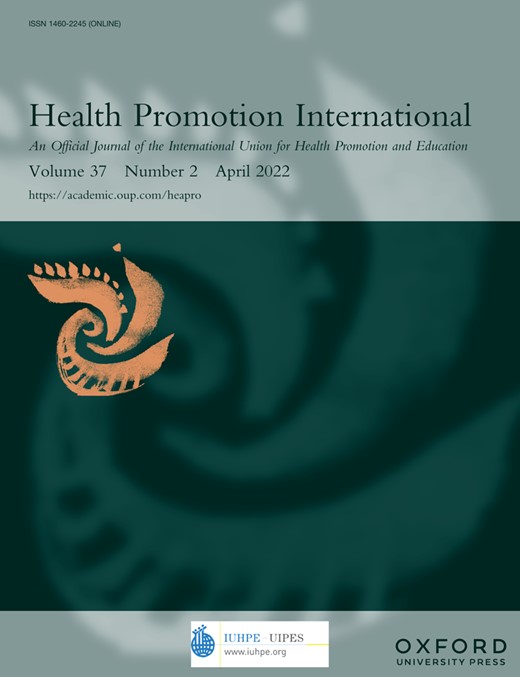-
Views
-
Cite
Cite
James Durl, Timo Dietrich, Ben Williams, Sharyn Rundle-Thiele, Integrating student and teacher insights to a school-based alcohol program through co-design, Health Promotion International, Volume 37, Issue 2, April 2022, daab167, https://doi.org/10.1093/heapro/daab167
Close - Share Icon Share
Summary
School-based programs may be more effective when an array of stakeholders, including users, are involved during the relevant stages of program co-creation—specifically during key development stages such as design, implementation and evaluation. How such programs can be operationally co-created and tested is less known and is therefore the purpose of this article. Two sequential co-design phases underpin this study. First, a co-design session with 20 health and physical education (HPE) teachers focussed on reviewing, testing and critically discussing initial prototype online modules for an alcohol education program. Teacher insights were assessed and incorporated, and the updated online modules were tested with secondary school students (n = 120) capturing their experience in a classroom setting. Insights from each group were analysed using thematic analysis. Teachers and students serve important roles in program co-creation. Teachers remain an underutilized stakeholder group whom are however critical in delivering important insights to enhance educational program design. Teachers demanded more relevance to the national curriculum, further alignment with curriculum assessment standards, and age appropriate content. Student feedback focussed largely on realistic content, personalization and gamification elements. This study represents an application of the seven-step co-design process and advances understanding of the ‘fuzzy back-end’ of the process, namely reflecting on feasibility of integrating teacher and student feedback and ideas. More specifically, how these key—yet distinct—stakeholder groups can be involved, and the merits of their involvement are discussed.
Lay Summary
There is much research existing for designing change programs across many contexts. Commonly, involving consumers and other related people in the design of these programs is recommended. However less is known about who to involve in the design of programs, what they can be expected to tell you when involved, and when in the design they should be involved. This study explores these questions when involving teachers and students in the design of a school based online education program. Focussing on alcohol education and moderation strategies, the findings of this study support that different stakeholders contribute their own unique insights, whether based on personal bias or based on the nature of their involvement as stakeholders (e.g. as teachers, as parents, as loyal consumers etc.). Furthermore, this study highlights the need for research to distinguish which recommendations to adopt between students and teachers, in a manner generalizable to other contexts and stakeholder groups. From the findings of the current study, the authors recommend multi-disciplinary teams to contrast and enhance a research teams’ perceptions regarding stakeholder insights.



